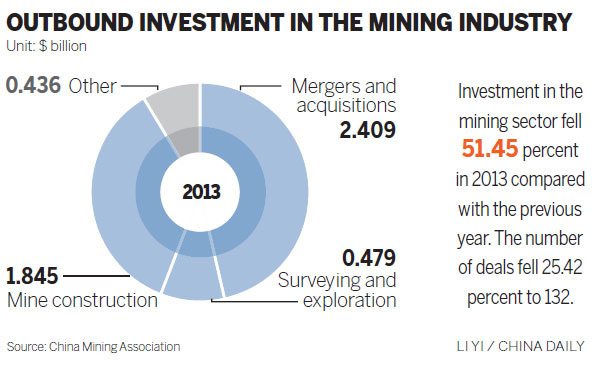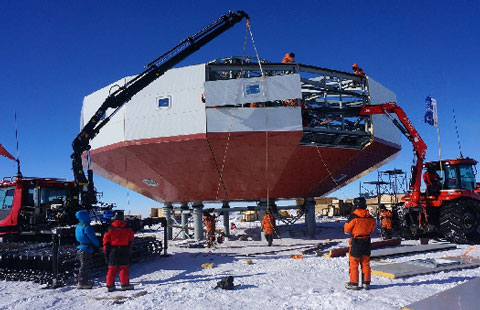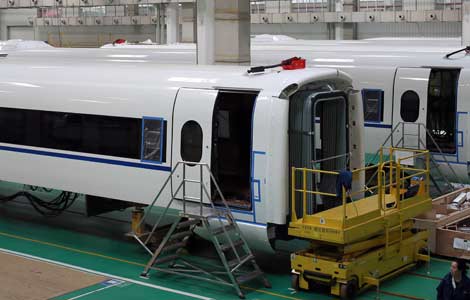Outbound mining M&As to rebound: Experts
Updated: 2014-02-19 08:52
By Du Juan (China Daily USA)
|
||||||||
China's outbound mergers and acquisitions in the mining sector sank to decade lows last year in terms of deal numbers and volume, affected by domestic policy shifts and a weak economy, but an upturn is due this year, experts said on Tuesday.
Jeremy South, global mining leader at Deloitte Touche Tohmatsu Ltd, told China Daily that out of the past 10 years, 2013 was the worst for China's outbound M&As in the mining sector.
"The new leaders of the Chinese government have sent new messages about overseas investment and the nation's economic growth mode, which partially caused the decline in outbound M&A deals," said South.
"As the government's structure and policies stabilize, outbound M&A activity should increase this year."
According to the China Mining Association, domestic outbound investment in the mining sector fell 51.45 percent in 2013 to $5.17 billion. The number of the deals fell 25.42 percent to 132.
Chang Xingguo, project director of the association's international minerals and finance department, said Chinese companies are evaluating overseas investments more rationally.
"They also have to put greater emphasis on sustainable development in foreign countries," he said.
"The variety and quality of assets on the market has given Chinese investors a smorgasbord to choose from," said Michael Liu, partner of enterprise application with Deloitte.
"Some are active while some are cautious, preferring to wait for even lower prices."
He said it's an opportune time for Chinese companies to acquire foreign assets because of falling commodity prices.
South said mining companies are hesitant to undertake transactions because of uncertainty about the forward curve of commodity prices.
Shareholders are also discouraging acquisitions.
"I suspect the M&A market will remain sluggish until there is greater clarity around future demand. The industry is going through one of those cycles that will drive people, in hindsight, to say that this was a good buying opportunity," he said.
"Companies that take advantage of this opportunity to go up the risk curve may find themselves rewarded over time."
Jeff Tao, partner of M&A transaction services with Deloitte, said the number of Chinese private mining companies that are interested in outbound M&A deals has been increasing.
"Plus, Chinese investors are shifting their overseas investment from traditional commodities such as iron ore and coal to diversified products including copper, gold and potash."
Affected by a weak global economy and slower domestic demand, the mining industry was squeezed last year by high costs, falling prices and low productivity.
Those challenges will persist this year, according to Deloitte.
Phil Hopwood, global mining leader with the firm, said while mining companies can't change global economic conditions, they can change the way they operate.
He said that mining companies need to adopt technologies that allow them to operate mines remotely, automate core mining processes and use techniques such as remote sensing to localize ore deposits.
Chinese miners rarely employ such innovations and concepts, said Liu.
From the technology perspective, there is a lot to learn for Chinese giants from global mining companies that are also striving to cut costs and improve production efficiency.
BHP Billiton Ltd, the world's biggest miner, announced on Tuesday a 31 percent rise in profits for its fiscal first half, which ended on Dec 31, as cost cuts offset lower commodity prices.
dujuan@chinadaily.com.cn

(China Daily USA 02/19/2014 page13)

 Spirit of adventure lives on in Antarctic
Spirit of adventure lives on in Antarctic
 Prince Charles dances in traditional Saudi dress
Prince Charles dances in traditional Saudi dress
 Maglev trains speeding toward greener future
Maglev trains speeding toward greener future
 Building collapse at Korean resort kills 10
Building collapse at Korean resort kills 10
 The big ballet stage
The big ballet stage
 17 more cement plants biting the dust
17 more cement plants biting the dust
 World's largest freshwater lake frozen
World's largest freshwater lake frozen
 American photographer wins World Press Photo 2013
American photographer wins World Press Photo 2013
Most Viewed
Editor's Picks

|

|

|

|

|

|
Today's Top News
Reforms to put safety first for low-level flights
PLA soldiers bigger, need new gear
China's aviation school banks on global ties
Green timber preferred overseas but not locally
NHK head regrets history words
Police to root out organizers of prostitution
Li to officials: Move ahead with improvements
'Equal' talks open to Taipei
US Weekly

|

|






